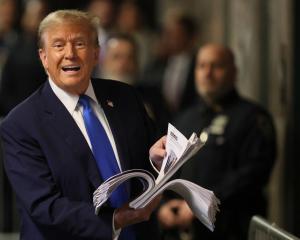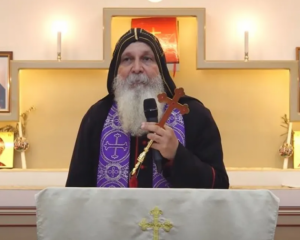Even as the diplomatic posts inched toward normal operations, and as Muslims celebrated the end of the holy month of Ramadan, questions lingered about how pressing the danger had been and whether the threat had yet passed.
The US embassy in Sanaa, Yemen, the same nation from which a threat from an al-Qaeda in the Arabian Peninsula earlier this month spurred the State Department to close its facilities, remained closed.
And the US consulate in Lahore, Pakistan, initially among the consulates open after US officials announced that an unusually high number would be closed, remained shuttered indefinitely. US officials evacuated personnel there Friday after receiving "specific threats."
The nature of those threats or who they aimed at remains unclear. A worldwide travel warning to Americans overseas remains in place through the end of August.
Meantime, the decision last week to close the embassies and consulates dashed assertions by the Obama administration just months earlier that the al-Qaeda threat was waning.
Indeed, the closures, coupled with a dearth of details about the threat, left many across the region wondering about the status of al-Qaeda and whether it is staging a comeback.
The United States has not closed a comparable number of embassies and consulates since the months following the Sept. 11, 2001, attacks.
In Yemen, some government officials are dubious about the threat posed to US facilities. A Yemeni official claimed earlier this week that the country had thwarted an al-Qaeda in the Arabian Peninsula plot to take over cities and oil and gas installations in the eastern province of Hadramawt.
Yet other Yemeni government spokespeople, noting that the Islamist group maintains a foothold in the province, publicly pushed back against such claims. They said that the militant group lacks the intention or capability to launch such a plot.
A high-ranking Yemeni security official speaking on the condition of anonymity told McClatchy that the claims of a foiled plot had no basis in fact. That source bemusedly attributed media reports about imminent terror strikes to a single official's comments, which he cast as a misguided attempt at shifting public opinion in the face of increasing and unpopular American drone strikes.
Indeed, Yemen has remained at a relative normal - except for increased security measures that sent spy planes over the skies of Sanaa and flurry of apparent drone strikes to points farther afield. The most recent drone attack killed at least two suspected militants in the southern province of Lahj Saturday evening.
US officials suggested the threat on its facilities was timed to coincide with the end of the Muslim holy month of Ramadan, when Muslims refrain from eating from sunrise to sunset. The last 10 days of the month are particularly sacred to Muslims. They believe some time during this period the Prophet Mohammed received the first revelations from the angel Gabriel.
Throughout much of the Islamic world Sunday, Muslims continued to mark the end of the holy month of Ramadan. While the religious period of celebration ended Saturday, many government buildings in Cairo and elsewhere remained closed until Monday.
State Department spokeswoman Jen Psaki said officials were assessing when to reopen the facilities in Yemen and Pakistan. She offered no specifics about how that decision would be made.
"We will continue to evaluate the threats to Sanaa and Lahore and make subsequent decisions about the re-opening of those facilities based on that information," Psaki said in a statement. "We will also continue to evaluate information about these and all of our posts and to take appropriate steps to best protect the safety of our personnel, American citizens traveling overseas, and visitors to our facilities."
For diplomatic personnel serving in Pakistan, even in facilities that remain open, that means a different mode of operating. In Islamabad, for example, diplomatic personnel are not permitted to drive personal vehicles marked with telltale diplomatic license plates.
US State Department personnel have been on heightened alert for nearly a year after suspected al-Qaeda affiliated groups stormed the US consulate in Benghazi and set it ablaze. That left four people dead, including US ambassador Chris Stevens, and created a firestorm of controversy over whether the Obama administration responded reasonably to threats to the facility.
While US officials said they have suspects in the attack and have charged one Libyan man, no one has yet to be detained and charged with in an assault believed to involve about 70 people.












